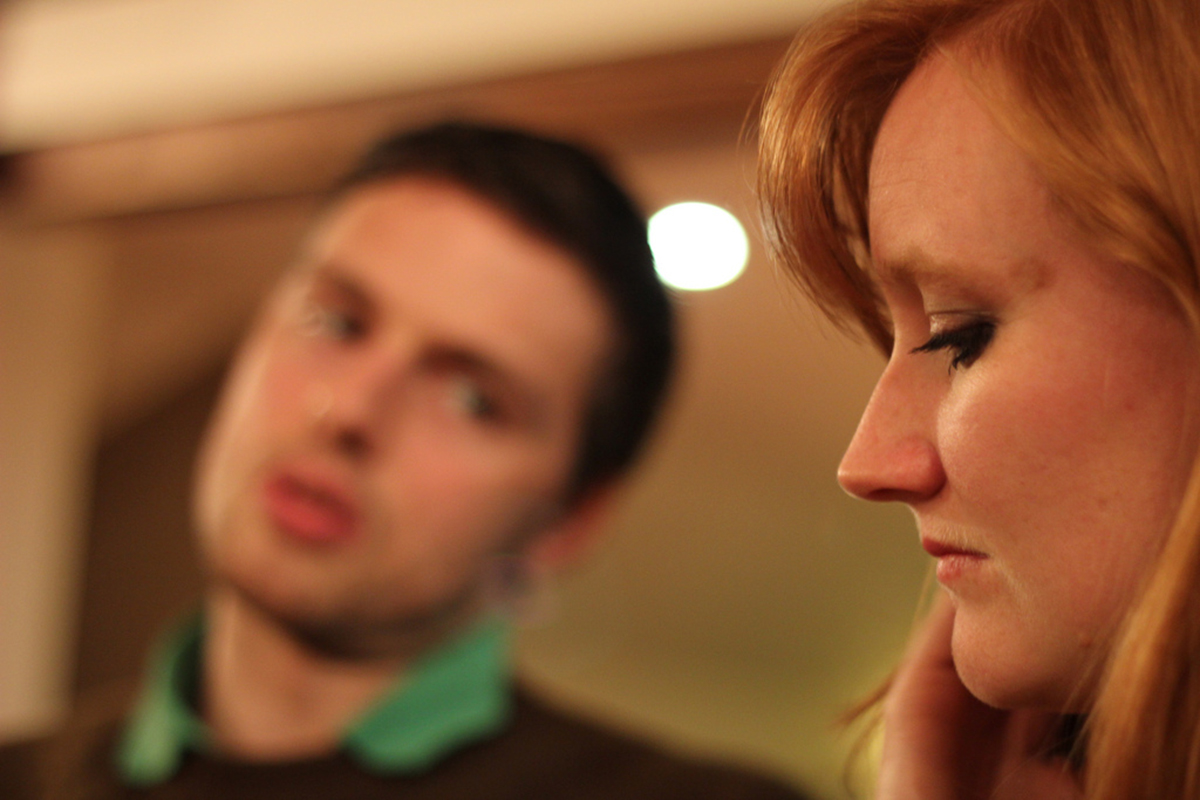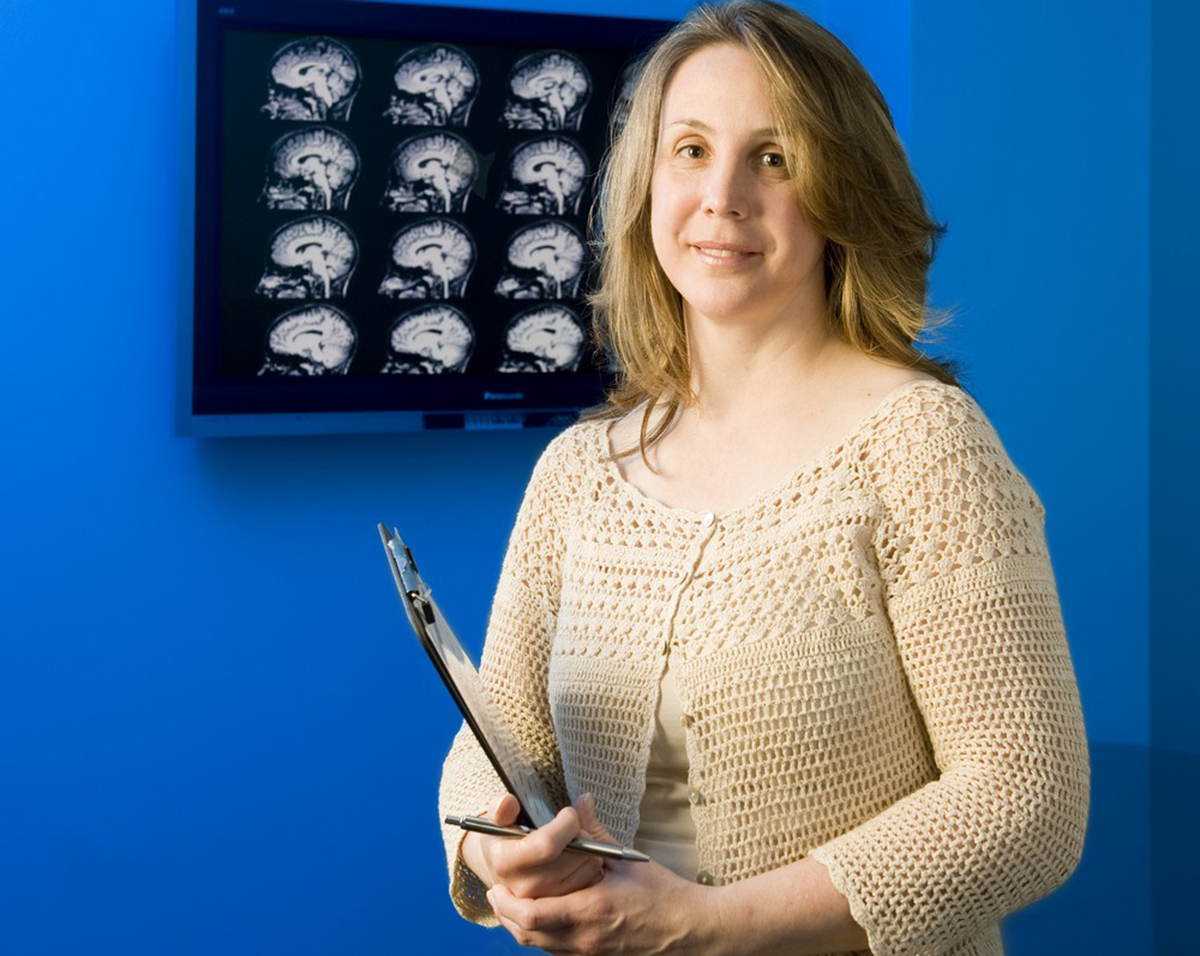Asperger's Syndrome is a form of autism, a neurological difference that can be debilitating or simply make someone "quirky". Asperger's can affect individuals to varying degrees, though it always has an impact on a person's social life, communication style, thinking and behavior.

With the increasing societal awareness of autism spectrum disorders, larger numbers of people hear about Asperger's. Coming across a list of symptoms might trigger some to wonder if they could have it.
In short, are you just a little weird, or could you have Asperger's Syndrome?
What Is Asperger's Syndrome?
Asperger's Syndrome was first described by the Austrian pediatrician Hans Asperger, who obviously gave the syndrome its name. Asperger observed a small group of children who had trouble with social integration in 1944. These children seemed to be of normal intelligence, but had difficulty fitting in with their peers, were physically awkward, and lacked non-verbal communication skills. Asperger noted that these children either had disjointed or overly formal speaking styles, and that they had a strong interest in a particular topic — which dominated their conversations.
Asperger gave what he observed the awkward and definitely not politically correct term "autistic psychopathy". That name was replaced by the more forgiving "Asperger's Syndrome" in 1981 by an English doctor who published a series of case studies involving children with similar symptoms.
It was included in the World Health Organization's diagnostic manual, the International Classification of Diseases (ICD-10), in 1992. Autism is a spectrum, and scientific studies have not been able to specifically differentiate Asperger's from high-functioning autism. The current Diagnostic and Statistical Manual of Mental Disorders (DSM-5) therefore chooses to represent the different forms of autism under a single category, that of "autism spectrum disorders".
See Also: Asperger's Syndrome: Difficulty in Social Interaction
Asperger's is a neurological difference that impacts many areas of a person's life. At SteadyHealth, we don't want to discriminate against anyone for being different — and that is why I'm going to avoid negative language such as "disability", "disorder" and "syndrome". Many people diagnosed with Asperger's feel strongly about the use of positive language that indicates a difference without declaring them broken. Despite this, there is no doubt that Asperger's can make fitting in with the rest of society terribly difficult for some.
How many people have Asperger's? That's not actually quite clear at present. Studies show that as many as one in 88 eight-year old children have it, but no research has been done to establish the prevalence of Asperger's in adults. There is no treatment for Asperger's itself, but children who have it can often benefit from social skills therapies, speech therapy, physical therapy, behavior modification and other therapies. If you're an adult aspie, some therapy may also help you. Just the realization that "this is what you have" can be therapeutic, though!
Asperger's: The Symptoms
Asperger's comes with a long list of symptoms. They can generally be divided into three areas, sometimes referred to as the "triad of impairments". They are communication, social interaction, and social imagination.

Many descriptions of the symptoms of Asperger's have been written by neurotypical people, making everything entirely clear to other neurotypical people but perhaps less clear to those who have Asperger's or suspect they could be aspies.
Such a list is going to look something like this:
- Communication: People with Asperger's may have a lack of rhythm, an odd inflection or monotone voice, and difficulty adjusting volume when speaking. They may have trouble making eye contact and both using and understanding non-verbal modes of communication like gestures and facial expressions. Frequent use of complex language is another characteristic.
- Social skills: Difficulty understanding how to start and maintain a normal conversation and general social awkwardness may make it hard for someone with Asperger's Syndrome to fit in.
- An obsession with a particular subject, about which large amounts of information are gathered.
- Reaching physical milestones such as walking and riding a bike at a later age. Physical clumsiness is also common.
- Asperger's Syndrome can cause those affected to develop eccentric and repetitive behaviors that are a little like those seen in Obsessive Compulsive Disorder.
Now, how does someone with Asperger's experience these same symptoms? The following list is paraphrased and compacted, but taken from the UK site Life On The Spectrum. Written by people with Asperger's, this list offers a different perspective:
- You might spend a great deal of your time pretending to be normal but scared the real you will be rejected. This could already have happened of course, because people might think you're weird for being interested in interesting stuff, or just think you're weird. They might be scared off by your "intense" communication style.
- Something is always different about you. You may not get jokes, or could laugh and talk too loudly. You feel mocked and teased by people. You feel different and frequently alienated from everyone else.
- Your hobbies or interests are really important to you.
- You like to organize things in a certain way.
- You seem to be more sensitive than others, and that may include impulses like noises, lights, and having lots of people around.
- Yet, others often think you are being too critical or argumentative, or just plain rude — when that is not your intention at all.
See Also: Is Autism Treatable?
You'll find the full list in the links box below. Meanwhile, if this sounds familiar to you, you might be wondering if it is time to initiate the diagnostic process. More about that on the next page.
Asperger's: Do You Need To Get A Diagnosis?
Because there isn't a single diagnostic test, diagnosis may be complex. Children suspected of having Asperger's may benefit from assistance with physical difficulties associated with the condition, as well as help acquiring social skills and navigating society. Adults who think they could be aspies have already been through life without this help, and may wonder whether they need an official diagnosis at all.

Getting A Diagnosis
If you do decide to go for a diagnosis, talking to your family doctor is often an excellent first step and sometimes quite enough. To make the process easier, it is a good idea to take one of the diagnostic lists you can find on the internet, and to write down specific areas with which you personally have difficulty.
The belief that women cannot or do not have Asperger's (now more commonly referred to as Autism Spectrum Disorder, or ASD) is based on a mix of historical diagnostic practices, gender biases, and early research. However, modern understanding has debunked this notion.
Initial autism and Asperger's research was predominantly conducted on boys, which led to early diagnostic criteria being tailored towards male-centric symptoms and behaviors. Coupled with this was a longstanding gender bias that made professionals view conditions like ASD primarily through a male perspective.
Interestingly, there's evidence to suggest that females with ASD may often present symptoms differently than males. Some females may be better at masking or camouflaging their symptoms, blending in by mimicking peer behaviors, thus making their symptoms less overt. Such subtleties have led to underdiagnosis in females, and when they do get diagnosed, it often happens later in life compared to their male counterparts. Furthermore, it's not uncommon for females with ASD to be misdiagnosed with other conditions like anxiety, depression, or borderline personality disorder.
Cultural factors also play a role; in some cultures, behaviors indicative of ASD in females might be overlooked or misinterpreted due to prevailing gender norms. In today's age, while the debate on the exact male-to-female ASD ratio continues, it's universally accepted in the medical community that ASD affects both genders.
As a woman, you may not live up to the "awkward nerd" stereotype. You may have become immensely successful at pretending to be "normal", and though you may know your public front is not the real you, your family doctor could be quick to dismiss your concerns because he's heard you make small talk before.
A neuropsychologist, psychiatrist or psychologist can also make the diagnosis for you. Neuropsychological testing isn't needed for an official diagnosis though some healthcare providers will suggest it.
To Diagnose Or Not To Diagnose
So, do you really want that diagnosis? There are a few compelling reasons to pursue it and either find out that you don't have Asperger's after, all to get a piece of paper confirming what you already suspected.
Getting a diagnosis may be incredibly liberating. It could finally explain why you have felt differently all your life. Instead of being a "weird" person, you could be a normal aspie. A diagnosis means you might be able to accept that "it's definitely not just in your head", and you really do have Asperger's. Some people might need the diagnosis in other to claim benefits, or to qualify for therapy, for instance.
See Also: Research Suggests Autism Is Genetic
Adults who are pretty sure they have Asperger's don't need to feel coerced into getting a formal diagnosis, however. At Life On The Spectrum, they say: "Many aspies are content to self-diagnose. They don’t need the piece of paper to prove their autism; they’re confident in their own knowledge that Asperger’s syndrome is what they have, and adjust their lives accordingly."
- Photo courtesy of Poindexter Propellerhead by Wikimedia Commons : en.wikipedia.org/wiki/File:Riboflavin_penicillinamide.jpg
- Photo courtesy of louiscrusoe by Flickr : www.flickr.com/photos/99619705@N00/7875826844/
- Photo courtesy of Army Medicine by Flickr : www.flickr.com/photos/armymedicine/8717872746/


Your thoughts on this